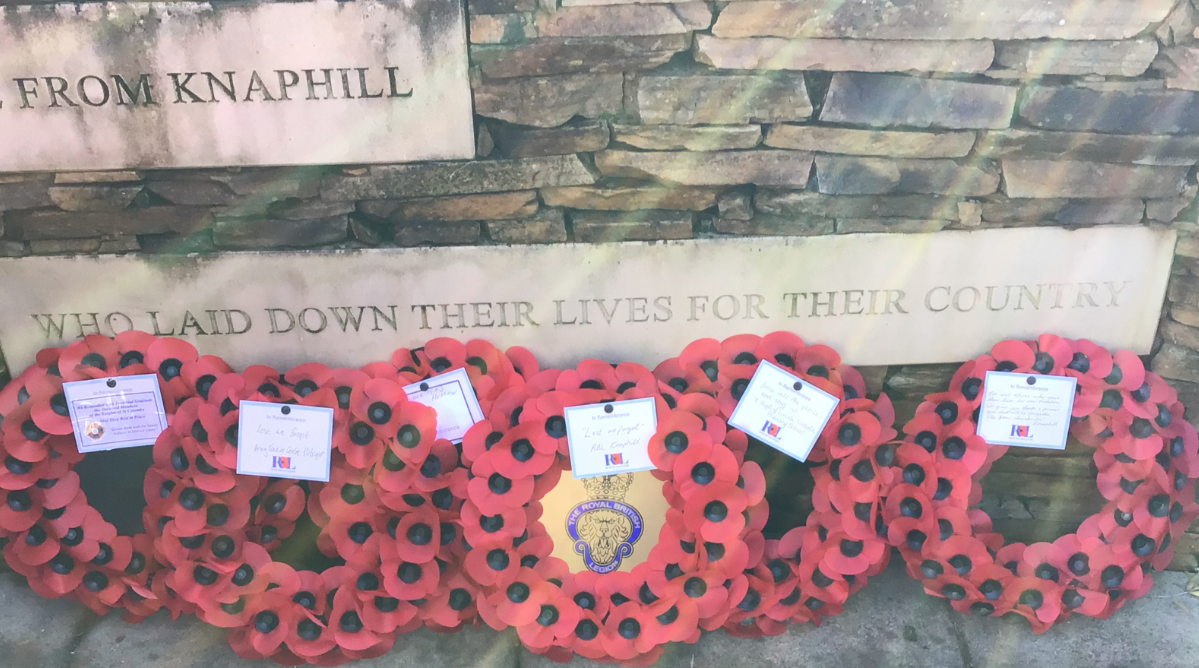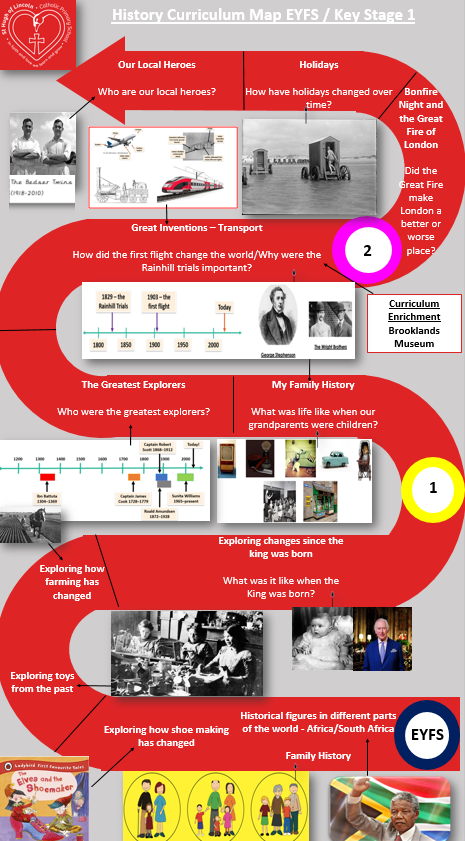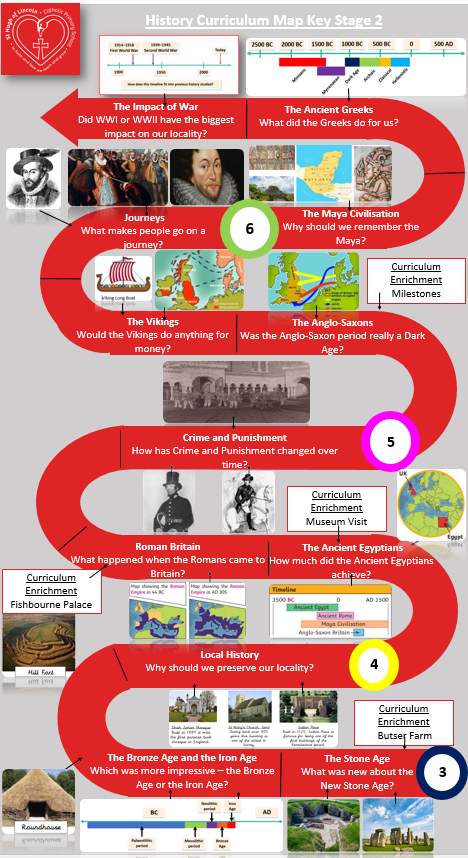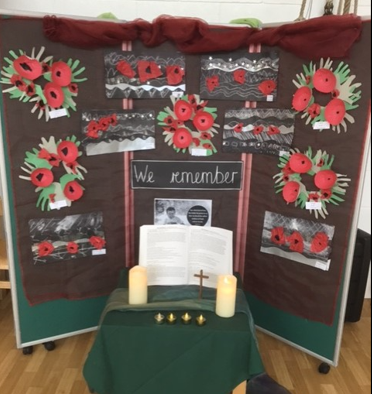History
"In faith and love, we learn and grow."
Intent
|
The national curriculum for history aims to ensure that all pupils:
|
- gain historical perspective by placing their growing knowledge into different contexts, understanding the connections between local, regional, national and international history; between cultural, economic, military, political, religious and social history; and between short- and long-term timescales.
Implementation
|
History planning for KS1 and KS2 is based-upon by the Rising Stars history scheme of work which is chosen because it is ambitious and delivers the core of knowledge required by the National Curriculum in an interesting and engaging way. Children are required not to simply acquire knowledge but to apply it in meaningful contexts. Questions and tasks to stretch and challenge the most able pupils are incorporated where appropriate. Revisiting ideas and concepts in different, more challenging, contexts in later units, using varied assessments and the inclusion of quizzes are all designed to help pupils remember content and integrate new knowledge into their evolving conceptual framework. Quality resources and materials are provided online to support the history curriculum and are sequenced towards the accumulation of skills, knowledge and understanding, working towards the next key stage. History is delivered in Reception through the ‘Understanding of the World’ element of the Early Years goals** In Key Stage 1 , History is allocated 1hour of curriculum time per week, in the first half term of each term. It is allocated 18 hours of curriculum time annually*. In Key Stage 2, History is allocated 1 ½ hours of curriculum time per week, in the first half term of each term. It is allocated 27 hours of curriculum time annually* The external curriculum has been enhanced by:
|
Visitors and Trips linked to Historical topics to enhance learning and develop cultural capital.
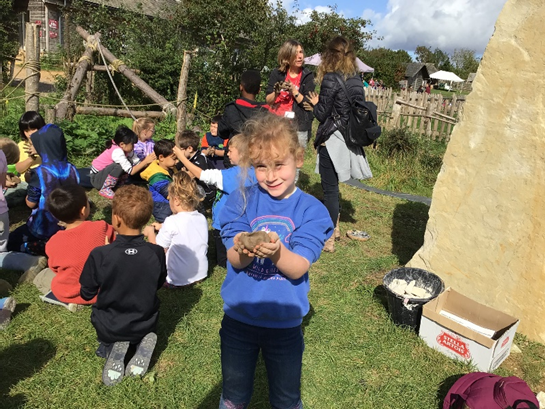
Year 3 Trip - Butser Ancient Farm
Impact
Our history curriculum offers an impactful, well planned knowledge rich lessons which encourage a deep level of historical based learning. Continuity and progression in the curriculum is built around essential knowledge, understanding and key skills within History. These are broken into year group expectations and included additional challenge for all learners.
Children at St Hugh of Lincoln Catholic Primary School will:
- demonstrate a love of History and an interest in further study
- retain knowledge that is pertinent to History with a real life context
- be able to critically question ideas and reflect on knowledge
- have evidence of work showing a range of topics covered, cross curriculum links and work adapted to their individual needs
- be able to articulate their understanding of historical concepts and be able to reason using rich language linked to the period being studied
- demonstrate a range of transferable skills through their work through organising, recording and interpreting results
- work collaboratively and practically to investigate within their historical based learning
- achieve age related expectations in History at the end of their year.
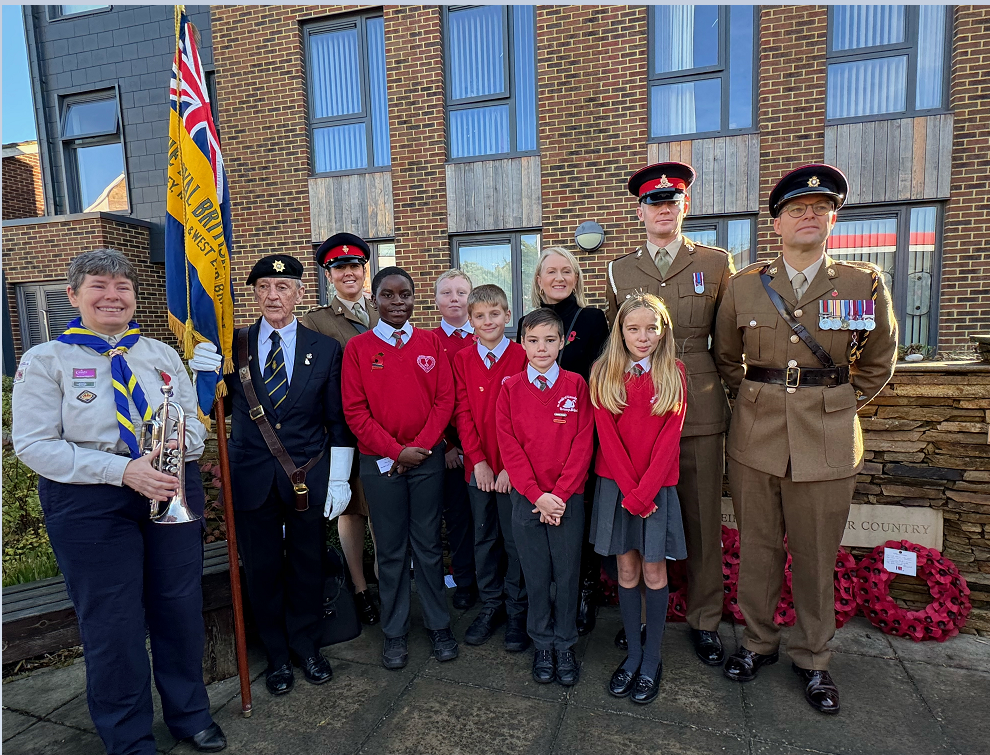
Act of Remembrance
